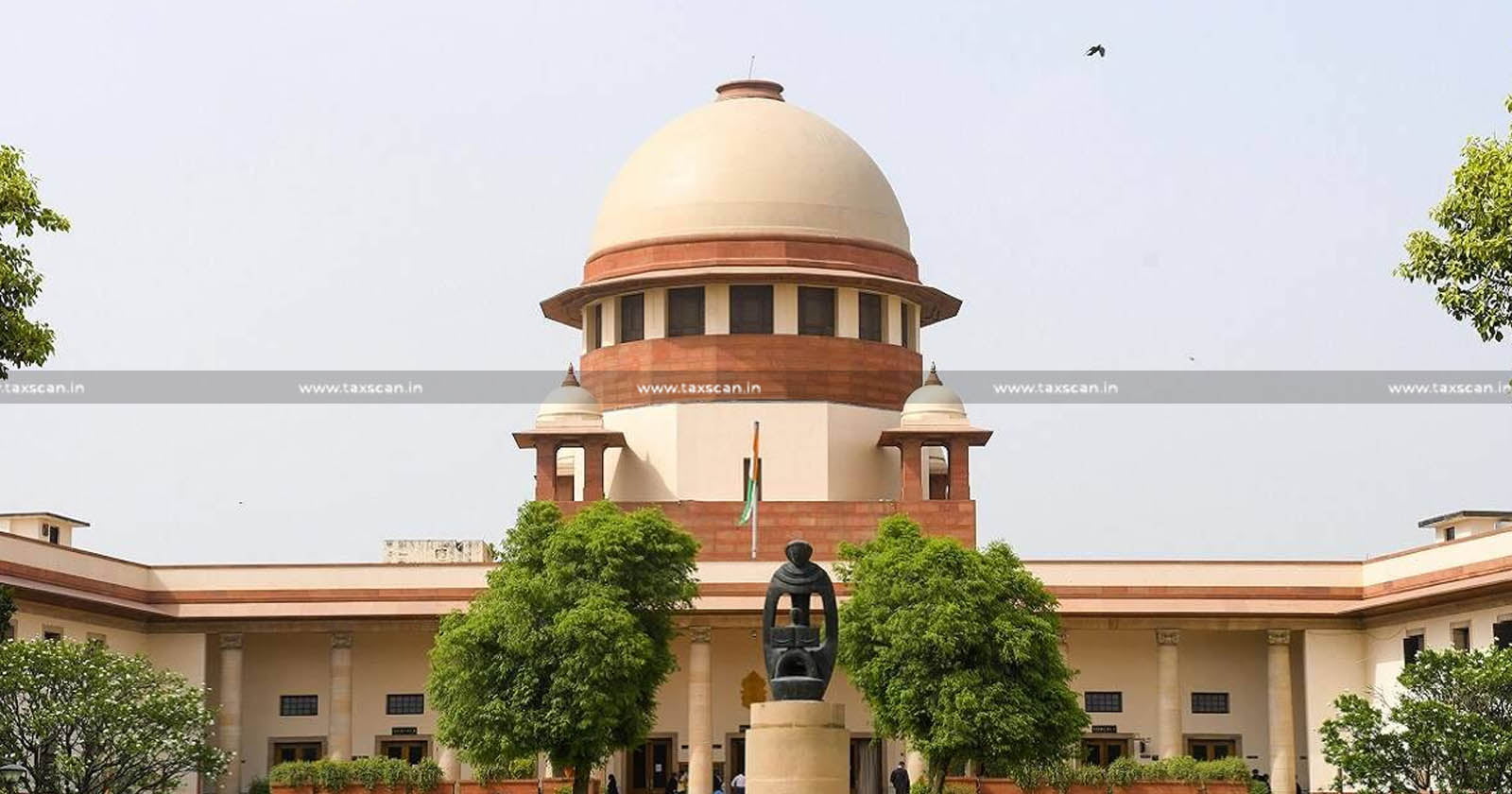Custodian of Enemy Property not entitled to Property Tax Exemption: Supreme Court [Read Order]
No Property Tax Exemption available to Custodians of Enemy Property under Section 285(1) of the Constitution, ruled the Supreme Court

Supreme Court – Property Tax Exemption – Custodian of Enemy Property – Supreme Court decision on enemy property tax – Taxscan
Supreme Court – Property Tax Exemption – Custodian of Enemy Property – Supreme Court decision on enemy property tax – Taxscan
The Supreme Court, in a recent ruling, declared that the 'enemy property' under the control of the government-appointed 'custodian,' as outlined in the Enemy Property Act of 1968, cannot be deemed as belonging to the Union Government for the purpose of claiming exemption from municipal taxes as per Article 285(1) of the Indian Constitution.
According to the decision by Justices B.V. Nagarathna and Ujjal Bhuyan, once the enemy property is vested in the Custodian, the Union of India cannot assert ownership.
This is because there is no transfer of ownership to the Custodian, and consequently, no ownership rights are conveyed to the Union of India. Therefore, the enemy properties held by the Custodian are not considered Union properties.
The Court emphasized that enemy properties are not entitled to the exemption available to Union properties under Article 285.
The key dispute arose when municipal tax demands were issued to the custodian of an enemy property, who argued that as the custodian is appointed by the Union Government, the ownership vests with the Union Government, making the property exempt from municipal taxes.
It was clarified that the enemy property, owned by the Raja of Mahmudabad and currently occupied by a respondent for profit, does not confer ownership rights to the Union Government. The Custodian, acting as a trustee and not an owner, cannot be considered as having any right, title, or interest in the enemy property.
The Apex Court ruled that the ownership of the enemy property remains with the enemy, and the mere vesting of property in the Custodian does not transfer ownership to the Union or the Central Government. Therefore, the Custodian cannot claim exemption from municipal taxes.
Highlighting Article 285(1) of the Constitution of India and (2) of the Constitution, the Court explained that without the Central Government's consent, the State or Municipal Corporation cannot impose taxes on Union properties. Since there was no consent for taxes on the enemy property, the custodian could not avail benefits under Article 285(1) of the Constitution of India.
In conclusion, the Supreme Court overturned the High Court's decision and allowed the appeal filed by Lucknow Nagar Nigam, establishing that enemy property managed by the custodian is not exempt from state taxes as per Article 285(1) of the Constitution of India.
It was observed that, “the High Court was not right in holding that the respondent as occupier of the subject property, is not liable to pay any property tax or other local taxes to the appellant. In the result, the impugned order of the High Court dated 29.03.2017 passed in Misc. Bench No.2317 of 2012 is liable to be set aside and is accordingly set aside.”
It was thus held that, “any demand for payment of taxes under the Act of 1959 made and thereby paid by the respondent to the appellant-authority shall not be refunded. However, if no demand notices have been issued till date, the same shall not be issued but from the current fiscal year onwards (2024-2025), the appellant shall be entitled to levy and collect the property tax as well as water tax and sewerage charges and any other local taxes in accordance with law.”
To Read the full text of the Order CLICK HERE
Support our journalism by subscribing to Taxscan premium. Follow us on Telegram for quick updates


